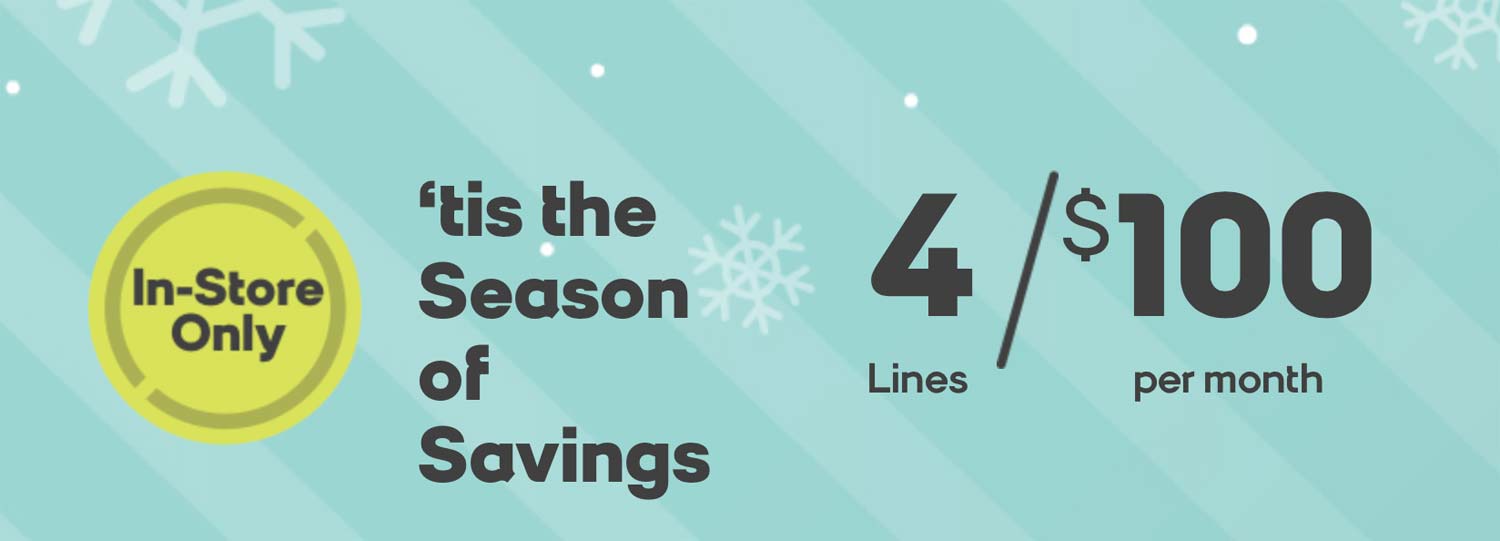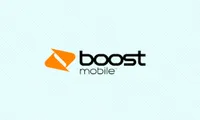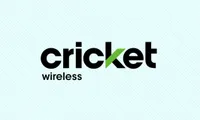Boost vs. Cricket vs. Metro: Whose Family Plan Deal Is Best?
Boost, Cricket and Metro have matching offers where you can get four lines of unlimited data for $100 a month. But read the fine print, and you can spot some differences between the three deals.
Here at Tom’s Guide our expert editors are committed to bringing you the best news, reviews and guides to help you stay informed and ahead of the curve!
You are now subscribed
Your newsletter sign-up was successful
Want to add more newsletters?

Daily (Mon-Sun)
Tom's Guide Daily
Sign up to get the latest updates on all of your favorite content! From cutting-edge tech news and the hottest streaming buzz to unbeatable deals on the best products and in-depth reviews, we’ve got you covered.

Weekly on Thursday
Tom's AI Guide
Be AI savvy with your weekly newsletter summing up all the biggest AI news you need to know. Plus, analysis from our AI editor and tips on how to use the latest AI tools!

Weekly on Friday
Tom's iGuide
Unlock the vast world of Apple news straight to your inbox. With coverage on everything from exciting product launches to essential software updates, this is your go-to source for the latest updates on all the best Apple content.

Weekly on Monday
Tom's Streaming Guide
Our weekly newsletter is expertly crafted to immerse you in the world of streaming. Stay updated on the latest releases and our top recommendations across your favorite streaming platforms.
Join the club
Get full access to premium articles, exclusive features and a growing list of member rewards.
You can't turn on a television set in December without stumbling across three things — Christmas carols, car commercials in which someone's tied an oversized bow to a luxury vehicle you can't afford, and prepaid wireless carriers promising holiday discounts on family plans.
We can't help you with the first two things, but we can take a closer look at the plans Boost, Cricket and Metro by T-Mobile are dangling in the hopes that you'll sign on for their wireless service.

And that closer look is desperately needed, since, on the surface, all three offers seem to be identical. Boost, Cricket, and Metro are all promising to give you four lines of unlimited data for $100 a month. How can you decide which is best, short of flipping a three-sided coin?
MORE: Best Family Plans Overall
Digging into the fine print of each offer, we can find some key differences between what Boost, Cricket and Metro have to offer. And looking at the bigger picture — including the three carriers' networks and what they provide customers — picking the right plan becomes even more clear.
Here's how the four-lines-for-$100 offers from Boost, Cricket and Metro compare.
| Carrier | Offer | Restrictions | Notes |
| Boost | 4 lines of unlimited data for $100 | 480p video resolution, 500 kbps music streaming, 2 Mbps game streaming | Separate offer provides 4 lines of unlimited data for $120 with HD streaming and 30GB of hotspot data |
| Cricket | 4 lines of unlimited data for $100 | 3 Mbps cap on data speeds; 480p video resolution | Includes unlimited calls and texting plus data access in Canada and Mexico |
| Metro By T-Mobile | 4 lines of unlimited data for $100 | 480p video resolution | Tethering not included in this unlimited plan |
Comparing unlimited plans
Get instant access to breaking news, the hottest reviews, great deals and helpful tips.
All three carriers will give you four lines of unlimited data for $100 a month. But there are some critical difference among the offers from Boost, Cricket and Metro.
Boost: The four-line offer from Boost is listed as an in-store deal only, so you'll have to go to a Boost location to sign up. Normally, four lines of Boost's basic unlimited plan cost $140 a month, so you're saving your family $40.
Boost Family Plan
But because this is Boost's basic unlimited plan, expect some streaming restrictions. Video streams come in at 480p resolution — probably sharp enough for a smartphone-sized screen but certainly not high-def. Boost also limits music streaming to 500 kbps and streaming games to 2 Mbps. These caps are unlikely to trouble the average user, but they're worth being aware of. If you use more than 35GB of data during a month under Boost's unlimited plans, the carrier may slow your data speeds until the next billing period.

If one or more secondary lines leave during your time with Boost, you'll still be charged for $100 a month. Should the primary line leave, the remaining lines get moved to a new plan, presumably the $50-a-month option where additional lines cost $30 each. Speaking of $30 line fees, that's what it will cost you if you want to add a fifth line of unlimited data on top of the discounted four lines you got through Boost's offer.
Cricket: The standard unlimited plan at Cricket costs $55 a month. You can add a second line for $25, while the third and fourth lines cost $10 each. But there's a big, big catch — Cricket throttles data speeds on this plan to 3 Mbps. That's even more sever than the 8 Mbps cap Cricket normally places on most of its other plans. Videos stream at 480p resolution.
Cricket Family Plan
Cricket's Unlimited Extra plan costs $150 for four lines of data, so you're saving $50 on this offer. But Unlimited Extra is the one Cricket plan without a speed cap, so those savings come with a trade-off.
The fine print on Cricket's offer warns of other potential one-time costs like a $25 upgrade/activation fee for each line plus $3-per-line customer assistance fees. But it sounds like many of these fees can be avoided if you order online instead of going into one of Cricket's stores.

There's one more limitation to this unlimited plan. Use more than 22GB of data in a given month, and Cricket may slow down your speeds if it's network is congested.
Metro by T-Mobile: Metro's four line/$100 offer has a lot in common with the one from arch-rival Boost. As with Boost, Metro's deal is only available through one of its physical stores. Metro normally charges $140 for four lines of its least expensive unlimited data plan — the same rate as Boost — so you're looking at an identical $40 in monthly savings.
Metro Family Plan
But there are some key differences between the two offers. While Metro's plan restricts video streaming to 480p resolution, it doesn't place any the caps on music and game streaming you'll find at Boost. Metro normally offers 5GB of tethering with its basic unlimited plan, but the $100/four lines offer specifically excludes tethering from the deal. It's unclear if the offer includes another perk of Metro's basic unlimited plan — 100GB of Google One storage.

Metro says it charges a $15 activation fee for each line. If one new line in your four-line plan deactivates, all the other lines lose their discounted pricing. In-store shoppers who buy a Galaxy J7 Star or LG Stylo 4 and bring over an existing phone number can get a $149 rebate on their phones. And with a limit of five rebates per account, you can get new phones for everyone on your discounted family plan.
Use more than 35GB of data in a given month, and your data speeds could get throttled.
How the networks compare
We recently tested LTE networks for eight carriers, including the three offering you and your family unlimited data at a discount. Those tests, conducted in eight cities, can give you an idea of what kind of performance you can expect from each service.
Cricket uses the network of parent company AT&T. But as you might imagine, the cap Cricket places on most of its subscribers can slow things down. Cricket finished second-to-last in our ratings, and that was with the 8 Mbps cap in place. We'd imagine the results would be even worse with a 3 Mbps restriction.
Yet Boost still finished behind Cricket in our ratings. While Boosts download speeds are much faster and on par with the performance of parent company Sprint, its upload speeds are paltry and it turned in the worst average time in our app download test.
Metro benefits from the strength of parent company T-Mobile with uploading and download speeds matching what Uncarrier customers get. (T-Mobile warns that Metro traffic may get deprioritized — i.e. slowed down — if the network is congested, but we only noticed that sporadically in our testing.) Metro had the fourth best download speed of the carriers we tested, finished just ahead of Sprint.
Customer service and other perks
We're in the process of re-testing customer support among each carrier. But the last time we looked at what kind of treatment you can expect from your wireless provider, Cricket had the top performance among these discount carriers, thanks to a thorough website with online chat. Boost finished close behind with a helpful website of its own. While Metro was improving during our last round of testing, its phone support remained spotty. Hopefully, the improvements continue now that it's rebranded itself as Metro by T-Mobile.
Boost doesn't specify if any hotspot data is included in its four lines/$100 deal. But a separate deal at Boost — four lines of unlimited for $120 a month — does include 30GB of hotspot data along with HD video streaming. While $20 more than Boost's in-store offer, it's still a discount from the carrier's usual rates.
Cricket has some appeal if you do a lot of traveling to Mexico and Canada. Its unlimited plan includes unlimited calling and texting in those countries. You also have access to your data, though speeds may be reduced to 2G. Your text, voice and data usage can't go over 50 percent in those countries.
Which deal should you pick?
Because of the 3 Mbps cap on data speeds, it's hard to recommend Cricket's unlimited family plan, especially when two rivals offer the same amount of data at the same price without that restriction.
There's little separating Boost and Metro, so choosing between the two comes down to the margins. If you want a plan that's free of restrictions on music and game streaming, you can turn to Metro; Boost offers some hotspot options if that's important to you, too.
In the end, network performance is the deciding factor. In general, Metro usually outperforms Boost, thanks to the strength of T-Mobile's network. If you live in an area that's particularly well-served by Sprint, you may find Boost more appealing, but you're more likely to get faster speeds from Metro, especially in big cities.
Editors' Note: We've corrected information about hotspot data that appeared in an earlier version of this article. We've also added information about international usage with Cricket's plan.
Philip Michaels is a Managing Editor at Tom's Guide. He's been covering personal technology since 1999 and was in the building when Steve Jobs showed off the iPhone for the first time. He's been evaluating smartphones since that first iPhone debuted in 2007, and he's been following phone carriers and smartphone plans since 2015. He has strong opinions about Apple, the Oakland Athletics, old movies and proper butchery techniques. Follow him at @PhilipMichaels.
 Club Benefits
Club Benefits














